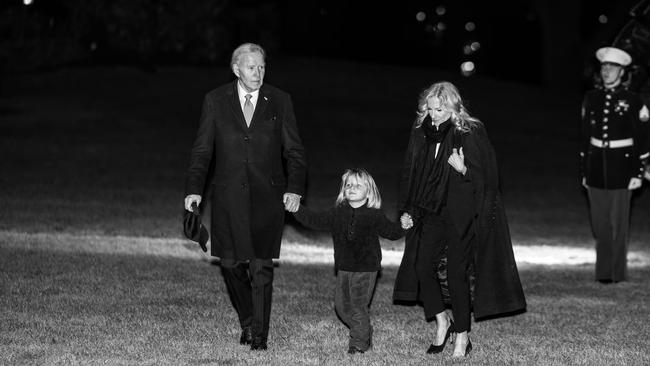Biden exits battling for his legacy and believing he could have won
The 82-year-old president is spending his final weeks in office telling war stories—and facing criticism that he inadvertently ushered in a second Trump presidency.
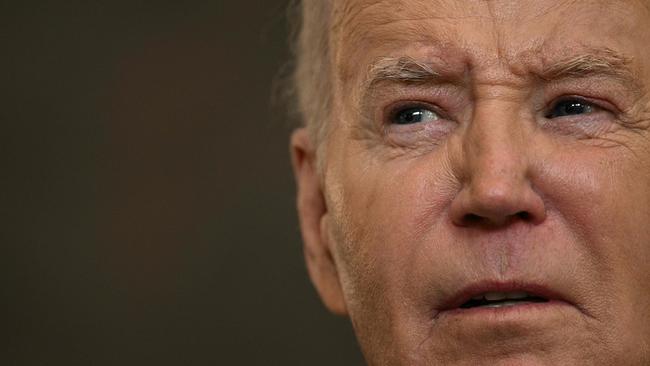
The beginning of the end of Joe Biden’s political life was off to a very slow start.
The Monday speeches at the Democratic National Convention in August had run over their allotted time, delaying Biden’s swan song address to delegates. Organisers rushed to speed things up. A video highlighting his 50-year career in politics was scrapped.
When the country’s oldest president finally took the stage in Chicago at 10:27pm, the crowd erupted with chants of “We love Joe!” For 50 minutes, Biden extolled his administration’s accomplishments and touted the qualifications of Vice President Kamala Harris, who later that week would accept the nomination that once belonged to Biden.
Toward the end of the speech, Biden quoted a Gene Scheer song, “American Anthem.” “The work and prayers of centuries have brought us to this day, ” the president recited. “What shall our legacy be?” But Biden tripped over the key word: “legacy.” It was a fitting start to Biden’s final public chapter, replete with poor timing, awkward execution and an imperfect crafting of his own legacy.
When Biden later jetted off to regroup at the 8,000-acre estate of his friend and donor Joe Kiani outside of Santa Barbara, Calif., he was already grappling with the consequences of the choice he had made to give up on re-election.
“If he ran, he really thought he was going to win,” said Kiani, a medical technology entrepreneur. “By not running, he was worried Trump would win. He just didn’t want to win at any cost.”
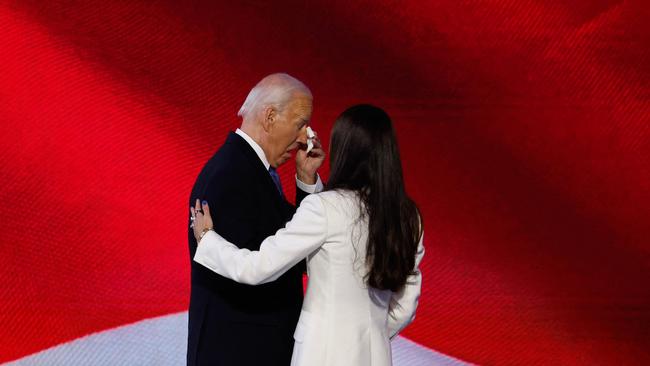
Indeed, a look at Biden’s final months in office reveals a White House toggling between nostalgia and what-ifs. This report on the end of Biden’s presidency is based on interviews with more than 30 people, including close associates, Democratic allies and those who have spent time with the president in recent weeks.
On one hand, Biden is an 82-year-old lion in winter who fills his public and private meetings with war stories from a long career and reminders of his achievements. He seeks to burnish his legacy, infusing even the most rudimentary of White House events with a retrospective look at his career.
Yet he also thinks he could have won the 2024 election, according to people familiar with Biden’s thinking. Biden doesn’t see that as a critique of Harris’s campaign, these people say. He has told people he simply believes that, as the man who stopped Donald Trump in 2020, he could have done it again. Some close advisers have argued he would have mobilised white, working-class voters and point to turnout in his victory in 2020 that bested Hillary Clinton’s in 2016 and Harris’s in 2024.
Now he is troubled by the fact that Trump will replace him in the Oval Office as a result of Harris’s loss. He has tried to thread legislative wins — like the CHIPS Act, which offered billions of dollars to attract advanced microprocessor manufacturing to U.S. shores — into the American economy in ways that would be difficult for Trump to unwind. He has locked in federal money for clean energy projects and is pushing for a deal to release hostages and end the fighting in Gaza.
“He’s been working hard, finishing things up, getting things out the door,” said Sen. Chris Coons, (D., Del.).
In the near term, no postelection decision is likely to cloud his legacy more than the pardon he granted his son, Hunter Biden, for federal tax and gun charges. Polls show a majority of Americans disapprove of the move. Prominent Democrats called it a hypocritical choice that made it harder to decry Trump’s mixing of politics and personal favours.
Hanging over it all is the wisdom of his decision to launch, and then abandon, a 2024 re-election bid. Harris’s close aides are careful not to directly blame her loss on Biden’s delay in dropping out of the race over the summer, but privately say that a few more weeks on the campaign trail could have made a difference in the outcome.
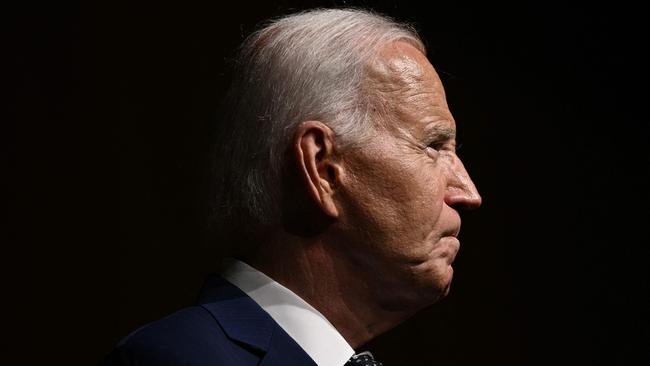
“Biden did some truly remarkable things while in office,” like establishing a women’s health research initiative, said Hannah Linkenhoker, a Los Angeles-based Democratic donor adviser and chief engagement officer at law firm Johnson Shapiro Slewett & Kole. “But it’s unfortunate that his legacy could be overshadowed by political miscalculations that ultimately ushered in a second Trump presidency.” The belief that Biden could have won isn’t widely shared in the White House or among the Democratic establishment, where the more common view is that the party would have suffered a much larger electoral defeat and lost even more congressional seats had Biden remained the nominee. White House aides, many who’ve been on job searches since early November, described the work environment in recent weeks with words like “draining” and “depressing.” Andrew Bates, a White House spokesman, said the president and vice president “are focused on delivering as many additional results for hardworking families as they can while finalising the most groundbreaking record of any modern administration.” Biden, he added, isn’t “spending his time relitigating the election or engaging in counterfactuals.” At Kiani’s estate in the aftermath of his convention appearance, Biden griped about the delays that had abbreviated his DNC address and pushed him out of prime time. He watched the convention and held talks with Middle Eastern leaders about the release of Israeli hostages in Gaza. He spent time sunning, took dips in the pond and went to church. First lady Jill Biden stopped by a local store to sign a copy of her book, “Willow the White House Cat.” Biden also reflected on his decision to drop out of the race. “Long term, he thought it was the best thing for the country for the Democratic Party not to splinter,” added Kiani.
By the time Biden returned to Washington, Harris was the Democratic nominee for president and the president walked into the White House a lame duck.
Life lessons and surprise visits
After being replaced on the Democratic ticket, Biden’s appearances, public and private, took on a more rear-facing quality. He wandered more than usual into personal terrain.
Speaking to a group of social media influencers invited to the White House in August, Biden veered from talking points about the “creator economy” to old stories and a recitation of his administration’s accomplishments. He repeated life lessons learned from his father, and touted his career-long crusade against drug companies that charge an exorbitant amount of money. He quoted an unnamed friend: “You got to know how to know, and part of the knowing how to know is knowing where to go.”
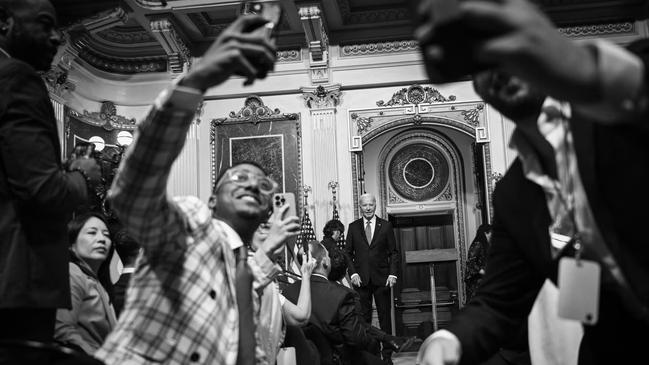
Duke Alexander Moore, a 30-year-old “tax pro for content creators” invited to the event, said he and other influencers shifted in their seats. “Oh my gosh, this is kinda boring,” Moore thought to himself.
The speech lasted 15 minutes. When Biden was about to be escorted out of the room, Moore grabbed his phone and got the president’s attention. “Do this with your hand,” Moore told him, passing his own through his hair in a hip-hop move known as the “Dougie.” Biden mimicked him with a smile while Moore filmed with his phone. He posted the video to his online profiles, and the engagement was titanic, but divisive. He ended up losing 100,000 followers from it, including those who didn’t like Biden or didn’t want Moore to get political.
In September, Hollywood executives from Disney, Netflix and other companies were in town for a meeting with their lobbying group, the Motion Picture Association. They visited the White House for lunch with Biden’s chief of staff, Jeff Zients, and what was expected to be a photo opp with the president. They were surprised when instead the president dropped by the lunch and had the group visit the Oval Office for 45 minutes. He told stories, presented memorabilia and showed the group the Rose Garden.
Minyon Moore, who chaired the Democratic National Convention, recently joined a small group for lunch with Biden in a room off the Oval Office.
“We all just enjoyed sitting there talking with him,” Moore said. “When you’re not under the glare, you get to hear a lot of his stories.” She added: “As age has set in on life, his wisdom kind of just shines through the conversations.”
Complicated hand-off
As the fall progressed, Biden was engaged in a delicate effort to rally voters without stepping on Harris’s toes. Her team struggled to figure out how to involve the president.
Seven days before the election, Harris delivered a closing address to supporters that encouraged fewer divisions along party lines — only for Biden that same evening to join a call with Latino activists and refer to Trump supporters as “garbage.” The president later said he was referring to just one Trump supporter, a comedian who had called Puerto Rico “a floating island of garbage” during a Trump event at Madison Square Garden. But the damage was done.
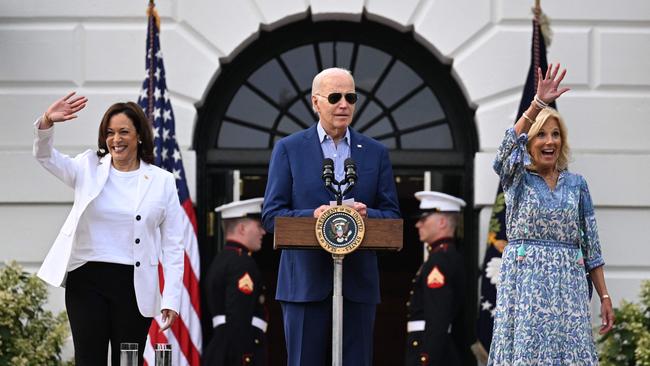
Harris’s frustrated aides and advisers privately spoke about how they could keep Biden even further out of the picture in the remaining days before the election. One joked that Biden should take a vacation, since he was already less central to the administration’s operations.
The postelection rapport among the Bidens and Harris and her husband, Doug Emhoff, in private settings has at times been frosty, people familiar with their relationship said. The first lady hasn’t been a fan of Harris’s since the 2020 election, when she accused Biden in a debate of opposing bussing policies that desegregated schools she attended as a young Black girl, say people who know both women.
Bates denied any chill in the relationship and said Biden has stressed publicly and privately since the election that he has deep admiration for the campaign Harris ran. Kirsten Allen, a spokeswoman for Harris, said that Biden and Harris have a close working relationship and have developed a friendship that extends to both of their spouses.
Stepping off the world stage
Shortly after the election, Biden embarked on a pair of foreign trips meant to cap his half-century involvement in world affairs. Yet the trips inadvertently highlighted how Biden at times struggles to keep up with the demands of being the leader of the free world.
During a six-day visit to Peru and Brazil in November, which put him in rooms with leaders from about 30 countries, he made scant remarks at public sessions and answered just one question from a reporter — offering a response so soft that it was initially missed.
Keeping a promise to visit Africa while in the White House, Biden in December became the first sitting U.S. president to touch down in Angola. In a meeting about a U.S.-financed rail project aimed at countering China’s influence on the continent, he closed his eyes for extended periods as other leaders spoke — once for roughly 50 seconds.
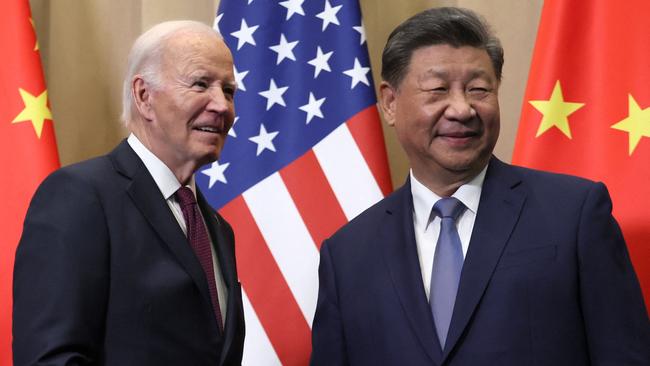
During a welcome ceremony outside the presidential palace in Luanda, Biden appeared lost and unsteady, and Angolan President João Lourenço, 70 years old, physically guided him as they walked together. Biden didn’t tour Luanda’s national slavery museum, which is perched atop a set of steep steps, and instead waited outside, where artefacts from the collection were brought to him.
To many diplomats, Biden’s departure from the world stage marks the end of a post-war era in which most U.S. presidents assumed broad responsibility for enforcing a rules-based world order to a more transactional approach.
“He has to be wishing he was going out on a different set of terms,” said Peter Harrell, who worked on Biden’s National Security Council and National Economic Council during the first two years of his term.
Unexpected pardon
In December, Biden surprised many Democrats — and even members of his own legal team — when he announced Hunter Biden’s pardon. Biden had earlier pledged not to make such a move, but in the end he argued that his son had been unfairly prosecuted by his own Justice Department because of his last name.
The pardon angered supporters who viewed it as a self-serving waste of political capital.
Democratic Sen. Michael Bennet of Colorado, a Biden supporter, rebuked the decision, writing on X that it “put personal interest ahead of duty” and that it “further erodes Americans’ faith that the justice system is fair and equal for all.” The anger, say some Biden confidantes, fails to account for the emotional vise that Hunter’s addiction problems have had on his father. The Biden family is fearful that Hunter could relapse, and some believed Hunter’s three convictions on felony gun offences in June accelerated the president’s decline. Hunter was convicted on June 11, shortly before the president’s poor debate performance.
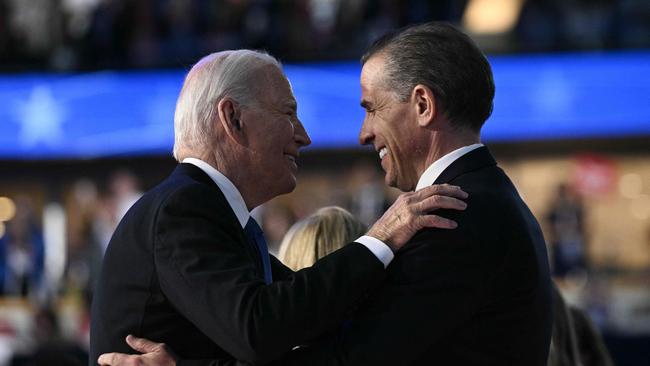
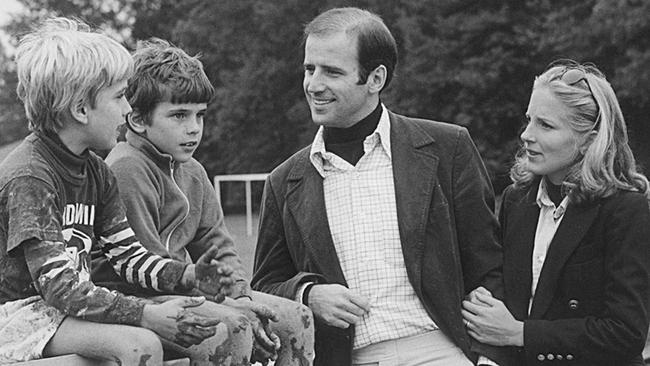
\Hunter’s wellbeing has taken on a more central role for the Biden family since the 2015 death of the president’s other son, Beau Biden, whose passing was one reason his father didn’t enter the 2016 presidential race. That decision still stings, since Biden believes he could have had a better shot at beating Trump than Clinton. The pressure to drop out of the 2024 race, only to see another Democrat lose, has been an unwelcome sequel for the president, supporters say.
Soon after Trump’s victory last month, Biden travelled to Claymont, Del., a small town where he had lived as a boy, to attend a Veterans Day ceremony at a local memorial that recently erected a plaque for Beau funded by an anonymous donor. The organisers moved the ceremony from 6pm to 2pm to accommodate Biden’s schedule.
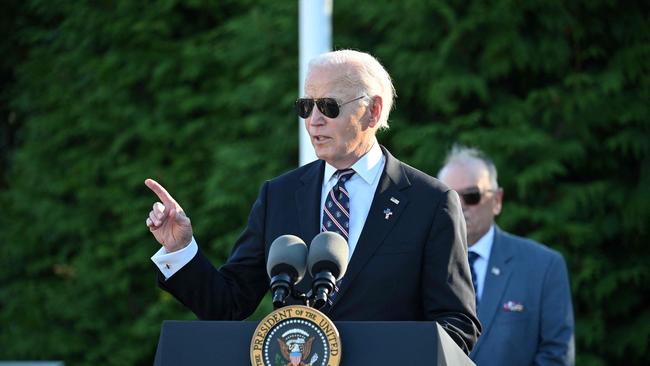
The president “expressed a lot of sombre, silent emotion” looking at the plaque, said Donald Van Alstyne, a former Army chaplain who helped organise the event. “He was deeply, deeply emotionally moved.” He added: “As far as I’m concerned, he was reflecting his soul.” A question of legacy When Trump takes the oath of office for the second time on Jan. 20, it will end a political career for Biden that began when he won a seat on the New Castle County Council in 1970 at age 27.
From the start of his presidency, there have been indications that he has been interested in defining his place in history. He regularly talks with presidential historian Jon Meacham, who he asked to help his brother James choose art to display in the Oval Office before he moved in back in 2021.
Meacham opted not to hang a portrait of George Washington over the room’s fireplace, as previous presidents had done. He instead placed a portrait of Franklin Roosevelt there, telling Biden it was because he and Roosevelt both took office at a time of historic challenges. Meacham added a portrait of Abraham Lincoln because the nation in 2021 was more divided than it had been since the Civil War, he told the president.
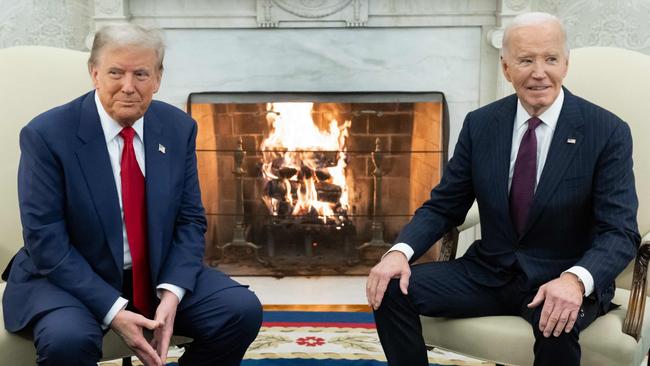
Now, however, the crash landing of his campaign and presidency threaten Biden’s climactic exercise in legacy shaping: his planned presidential library.
Discussions are under way for a library that would likely be located in Delaware and require hundreds of millions of dollars. A number of large donors and donor advisers, however, said the president’s final year in office has soured their support for the effort, citing his decision to run for re-election and then his delay in dropping out after the debate. Others say they aren’t over the Hunter pardon.
Many of the small circle of advisers who have stayed close with Biden through the turmoil of these last several months are expected to remain with him. Few of his associates have any sense of what the president will do next. But his friend Kiani said his goal is clear.
“He really wants to use whatever time he has to help make things better.”
